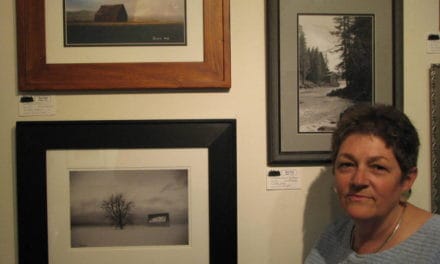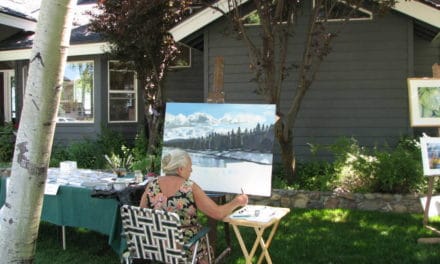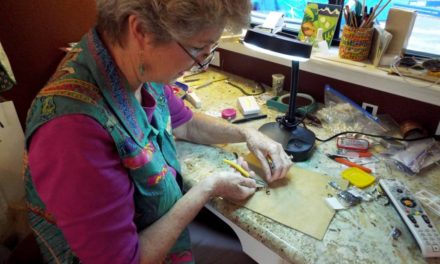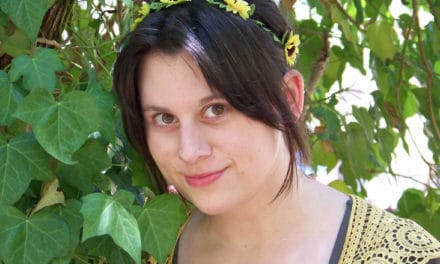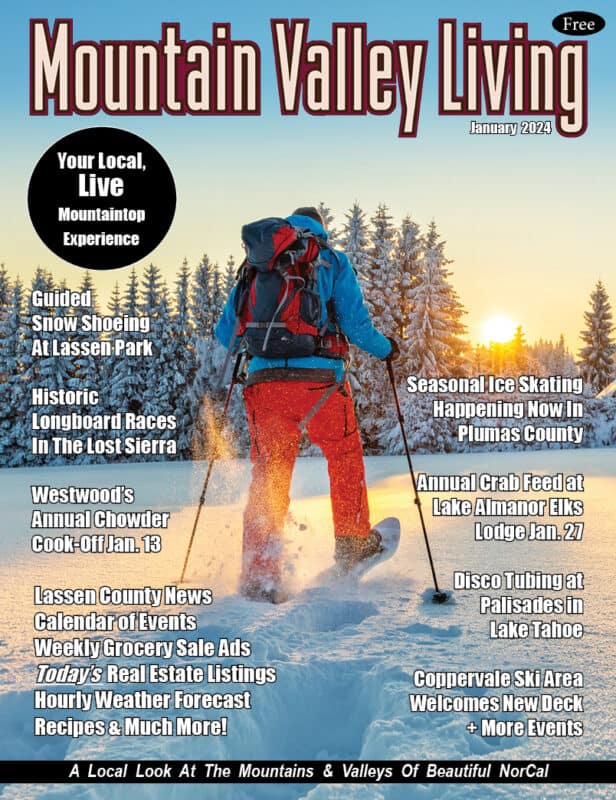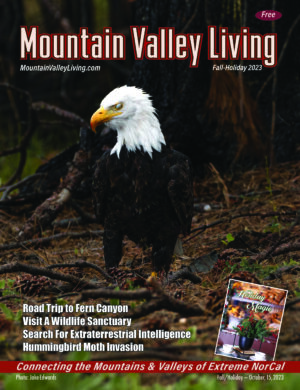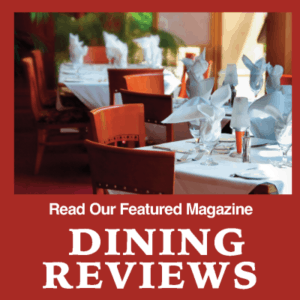Aaron’s Journal Entry: First night on the river
Very dark now. We are traveling upriver by flashlight. We haven’t found the tribe yet but can’t stop
because it’s too dangerous to sleep in the open jungle. Hoping to see tiki torches soon.
Getting later and colder. Still no village. Hoping the flashlight batteries last.
Getting later. Heavy fog building on water. No village in sight.
On the boat now for 12 hours. Spotted a faint light on the shore. It was a indigenous family that has lived on the river for 43 years. They saw our desperation and told us we could set up camp for the night on the river bank. Got a few hours sleep when the boat captain woke us up. He wanted to be back on the water by 5 but we slept in until 6.
Heyo friends! So for the past couple of years I’ve been lucky enough to write this column and introduce you to local artists and their work. This time around I’d like to tell you a little about my craft and where it’s taken me.
I studied Media Arts at Chico State with a double minor in documentary film and journalism. I graduated and bought a camera.
For one of my first jobs, local soroptimist organizations sent me to Nicaragua. For three months I documented the recovery process of women and children who were rescued from human sex trafficking.
After Nicaragua I was hired to film in Haiti. We traveled through tent cities doing feeding programs and women’s conferences.
I’ve been lucky enough to stay working in the film world doing about a project a year. This year, I got a message from Aaron Palmatier asking if I was interested in doing another video for Missions Door. He was quick to add that the video would be shot in Bolivia, deep in the Amazon jungle and we’d be traveling on a small river boat. It wouldn’t be a trip for the lighthearted but without a doubt, it would be an adventure. He advised me to think it over before committing myself. He told me we’d be sleeping on the shore in tents and traveling down the river to remote villages during the day. “Safety from hostile tribes and wild animals are not guaranteed. Clean drinking water and food is hoped for but not certain.” Aaron cautioned with his humorous undertones. “There will be two doctors with us so I’m sure they can sew back on your arm if we get it back from the gators.”
I took his advice and seriously thought it over. But no matter the warnings about mosquitos, alligators, piranhas, and other things that go bump in the night, I couldn’t shake the knowing that this was an opportunity that the majority of the population would never get. I had to go.
In May I met up with Aaron and Mark Jones (another employee of Missions Door) in Miami and we made the trip to Bolivia together. After a 9 hour flight and hassles getting our visas, we were anxious to get to get out of the airport. Elmer Terrazas, a local pastor and the man who put the river trip together, picked us up and we spent the rest of the day enjoying the city of Santa Cruz de la Sierra.

The next morning we flew to Trinidad where we met the rest of our team. Trinidad wasn’t a big city like Santa Cruz and instead of riding in a taxi to our hotel, we road on the back of motorcycles. It was pretty impressive how they got all our gear on the bikes with us and no one wrecked.
At this point in the trip I think we were all anxious about the river trip, it was a first for Mark, Aaron and me. Going along with us was Elmer, Pastors Elias and Fidel, Daniel (our cook), Dr. Sandra and Dr. Tito, Lidia (Dr. Sandra’s friend and assistant), Cristobal, and our captains Juan and Javier.
We got up Sunday and headed for the river. We got on the boat at 10:00 AM. It was loaded with not just people but baggage that ranged from tents and sleeping bags to doctors supplies, and clothes to give to the villagers.
While on the boat you were pretty much instructed to stay seated so the drivers in the back of the boat could see where they were going. Daniel, our chef, prepared breakfast lunch and sometimes dinner all from his seat on the boat.
Our day was spent watching the wildlife we’d happen upon which included pink dolphins, jumping fish, alligators, caiman, birds of all different colors and species, capybara, and turtles.
After spending all day traveling up the river, we were all beginning to wonder how much longer we’d be on the boat. The dark didn’t slow us down any and as I sat looking up at the stars, searching for a familiar constellation, I was hit with the realization, I was in fact traveling up the Amazon river in the middle of the night.
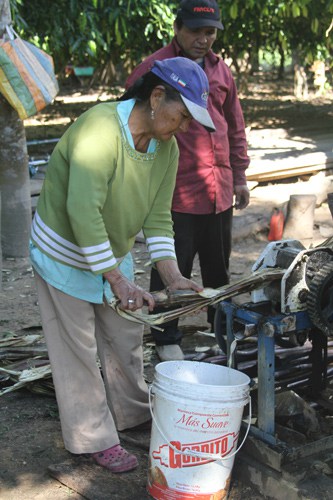

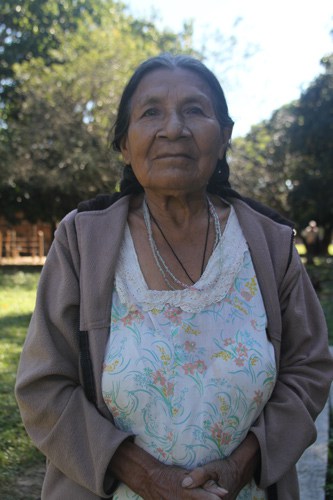
As the night wore on, so did we- dozing on and off in the boat in-between mosquito bites. One captain manned the motor while the other stood at the front of the boat using a flashlight to scan the water and the shoreline. The silence was broke when the captain at the front yelled, “Tigre”, they used a bigger light to shine on the shore and saw a Jaguar. Of course a little ways down was where we ended up camping. It wasn’t a tribe they’d worked with before but instead just a family who took pity on us and allowed us to camp there for the night.
By the time we set up our tents and got to sleep it seemed like it was time to get up.We loaded the boat as the sun was rising and started up river again. We spent another full day traveling and Monday night we reached the first village we would work with.
The next morning the doctors started working immediately. As Dr. Sandra and Dr. Tito examined what seemed like a never ending line of patients, the pastors played music for the kids and preached the gospel. Aaron had a surprise for all the children in the village. There’s a group of women here in the states that get together and sew dresses and shorts for the kids on Aaron’s trips. So he and Lidia passed out brand new dresses and shorts.
When we loaded back onto the boat to set off for the next village the doctors had treated 46 people and Aaron had given out 40 dresses and shorts. This experience was what the trip was about, allowing the doctors to work on people who rarely saw medical treatment and outsiders. I wish we had more time to spend in the little villages but they had a schedule to keep.

The days we spent on the boat seemed to all drift together. Time was obsolete on the river, days were broken into time spent on the boat and time spent on land. Our breakfast every morning was masaco, a Bolivian dish that consists of mashed green bananas, jerky, cheese and salt. Lunch and dinner depended on what was caught or gifted by villagers.
We reached Puerto San Lorenzo by Wednesday afternoon. This was the last village on our route before turning around. It was weird getting to a village during the day and they gave us a couple of hours to just relax. I loved watching Dr. Sandra interact with people and Javier, our captain, play soccer with the kids.
The next morning we were up and leaving hours before the sunrise. With the current on our side, it took us two days to travel back to where they keep the boat. On the way we stopped at four other villages to give clothing and play music. The stops weren’t long but if someone needed medical treatment the doctors never turned them down.
The villages we visited were a trip because some parts of these people’s lives are so primitive, they cook on open fires and bathe in the river but then you’d see a little hut where you could buy a cold Coke-a-Cola. You feel like you’re at the end of the world but then you see people walking around with cell phones.
One thing I know is the people who live out there in the tribes we visited are a tough, strong, and resilient type of people. It’s a hard life on the river but they were so kind to us and willing to help in whatever way they could, even if it was as simple as giving us fresh oranges or a place to sleep for the night.
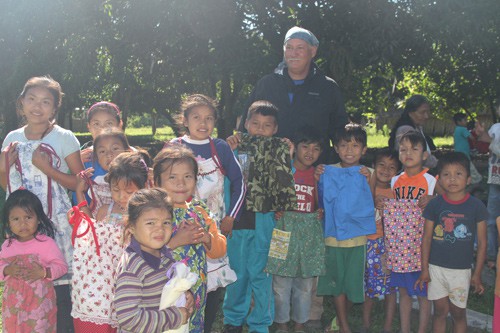
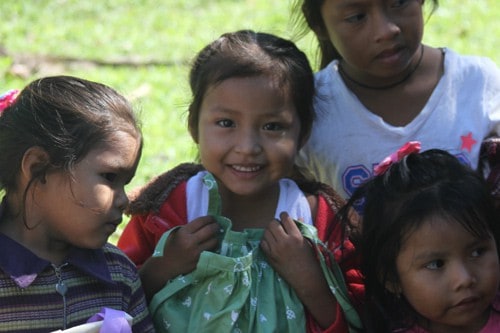
Getting back to Trinidad was a bitter sweet experience. My body was covered in mosquito bites and I was exhausted but the boat had become a home for us this past week. We slept, ate, laughed, and shared this amazing experience together on that boat. It was hard and rough and not what I was expecting at all but like Aaron promised, it was an adventure and I’m so glad I went. I experienced so many new things, learned about new cultures and found a little more of myself in the process.
We found out later the tributaries we were on, not everyone gets permission to travel down (The people who don’t get permission, sometimes don’t come back out).Elmer had to get special government permission and also tribal permission. Our captains not only had to know the way but also the dialects of the tribes we were visiting. So on this trip, the 13 of us, saw places that 99% of the population will never see.
If I could relay one message to you that I’ve learned from my jobs abroad it’s – GO. EXPERIENCE. DO. Get outside of your comfort zone, get immersed in another culture, and do it all with an open mind and heart. In my experience, when you leave behind your comforts, that’s when you find more of yourself than you were aware of in the first place. It’s okay to be nervous or afraid but don’t let that fear dictate your experience. Push through it, it will be worth it.


